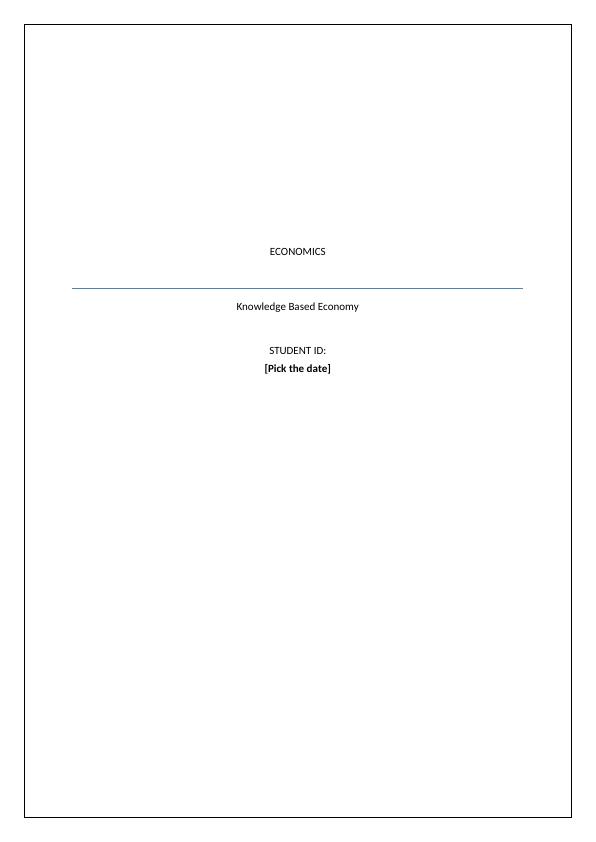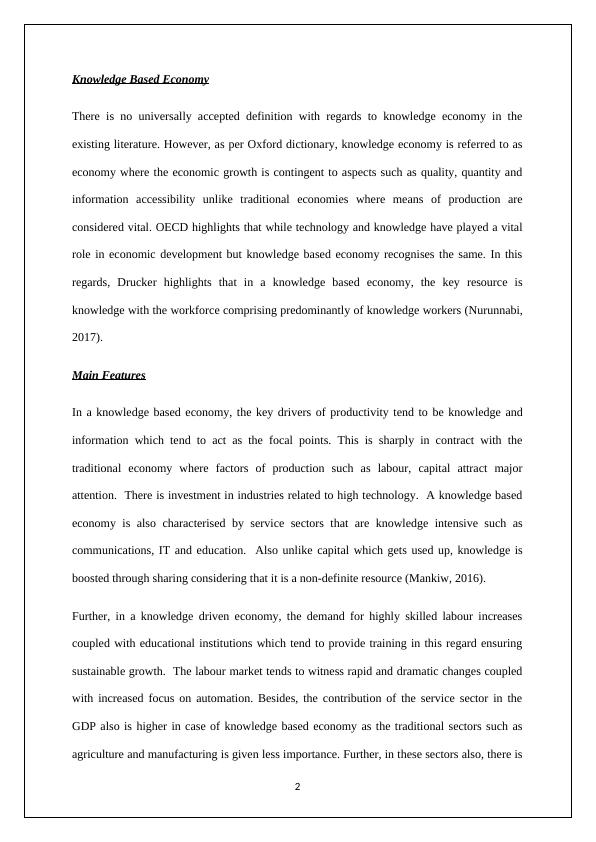Knowledge Based Economy
5 Pages976 Words191 Views
Added on 2023-04-23
About This Document
This article discusses the features and benefits of a knowledge based economy. It also talks about Saudi Arabia's transformation to a knowledge economy through initiatives like National Transformation Program 2020 and Vision 2030. The article highlights the need to shift to a knowledge based economy and how it can improve productivity and employment opportunities. The article is relevant for students studying economics and related courses.
Knowledge Based Economy
Added on 2023-04-23
ShareRelated Documents
End of preview
Want to access all the pages? Upload your documents or become a member.
Exploring Saudi Arabia's Knowledge-Based Economy: A Case Study
|10
|2792
|133
Economics Assignment 2022
|8
|1737
|50
Factor Endowment Theory and Trade Patterns of Saudi Arabia and USA
|6
|1726
|259
International Economics
|5
|1035
|449
Compute GDP of Saudi Arabia Assesment
|4
|806
|21
Resource Endowment Theory and Comparative Advantage: A Comparison between KSA and Japan
|6
|1351
|165


